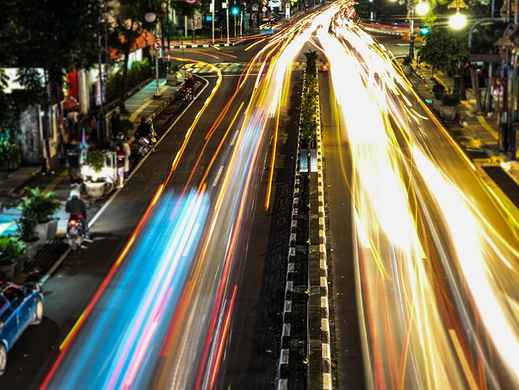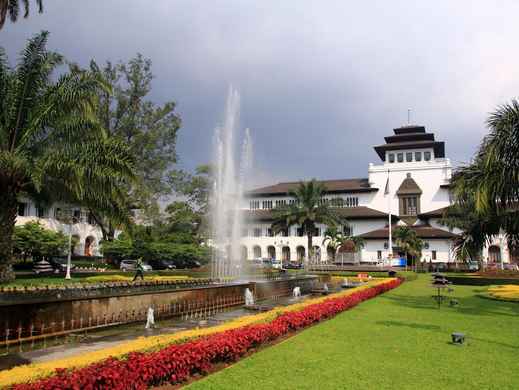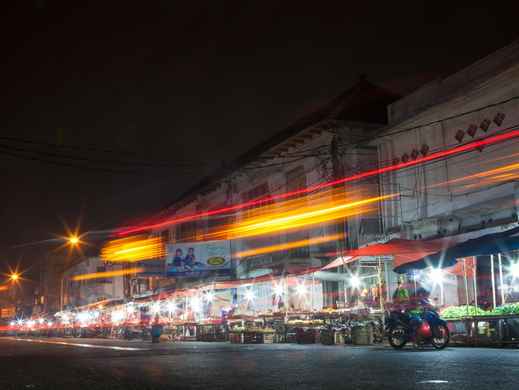


Cimahi
Asia
/
Indonesia
/
Cimahi
Located in the highlands of West Java, Cimahi is a lively city just outside of Bandung, the third-largest city in Indonesia. Sitting at approximately 768 meters or 2519.6 feet above sea level, Cimahi boasts a refreshingly cool year-round climate. Temperatures generally range from 22-28°C (71.6-82.4°F), with frequent mild rain showers in the afternoons.
The city's origins trace back to Dutch colonial rule when it was first established as a military garrison. Despite its transformation into a vibrant urban hub, Cimahi still clings to its historical charm. Here, traditional Sundanese elements meet the contemporary Indonesian lifestyle head-on, creating a distinctive cultural fusion that's easy to get lost in. From cozy endemic warungs or local eateries to modern café joints, Cimahi presents a delightful culinary mix.
What truly sets Cimahi apart is its defining role as a center for military history and creative arts. The city houses a captivating Military Museum that details Indonesia's military progression throughout history. Simultaneously, the Cimahi Creative Hub serves as a mecca for aspiring artists and digital creators. Culinary enthusiasts should not miss out on trying the city's hallmark dish, Nasi Tutug Oncom - a tasteful concoction of rice fused with fermented soybean cake, accompanied by assorted traditional sides.
Make sure to add the Cimahi Waterfall on your must-visit list, an exquisite 87-meter or 285 feet fall that's a hit with nature lovers and photography enthusiasts. Visit the Cimahi Film Park to delve into the city's involvement in Indonesia's early cinematic history. And last but not least, don't miss the chance to immerse yourself in the typical local daily life by visiting the city's traditional markets.

Travel Tips for Cimahi
What you need to know before traveling here
Getting Around Cimahi
A guide to Cimahi's local transportation
Public minibuses or ""angkot"" operate on fixed routes across the city of Cimahi. Pay attention to the number and route mentioned on the side of these vehicles. They can be flagged down anywhere along their route. Fares are generally quite cheap, typically ranging from Rp 5,000–8,000 per ride.
Practical Tips for Cimahi
Things to prepare and best way to visit
The optimal time to visit Cimahi is during the dry season, between May and September. The weather is generally more stable, making outdoor activities more pleasurable. It’s worth noting that weekdays are typically less crowded than weekends.
Yes, Cimahi is generally deemed safe for solo adventurers. However, it's still advisable to follow common safety practices such as avoiding solitary walks late at night and keeping your belongings secure. The locals are known for their friendliness and helpfulness.
Your best bet would be to take a taxi or book a ride with Grab/Gojek. The journey averages between 30-45 minutes, depending on traffic conditions, and fares generally range from Rp 100,000–150,000.
While knowing basic Indonesian phrases might come in handy, it's not a requirement. In fact, many young locals have a good command of English, especially in places that cater to tourists and shopping areas. Having a translation app installed on your smartphone may provide an extra safety net.
The local currency used here is Indonesian Rupiah (IDR). Card payments are accepted at many establishments, however, it's always advisable to have some cash handy for transactions at local markets, street food stalls, and public transport.
See All Practical Tips for Cimahi

Explore Cimahi
Create your itinerary with our top picks below
Set off your journey to Cimahi
Plan smart & save big! Use discount code BISAYUK only for you

Flights

Hotels

Xperience

Travel Tips for Cimahi

Explore Cimahi
More Destination Near Cimahi
































 Facebook
Facebook Instagram
Instagram TikTok
TikTok Youtube
Youtube Telegram
Telegram
